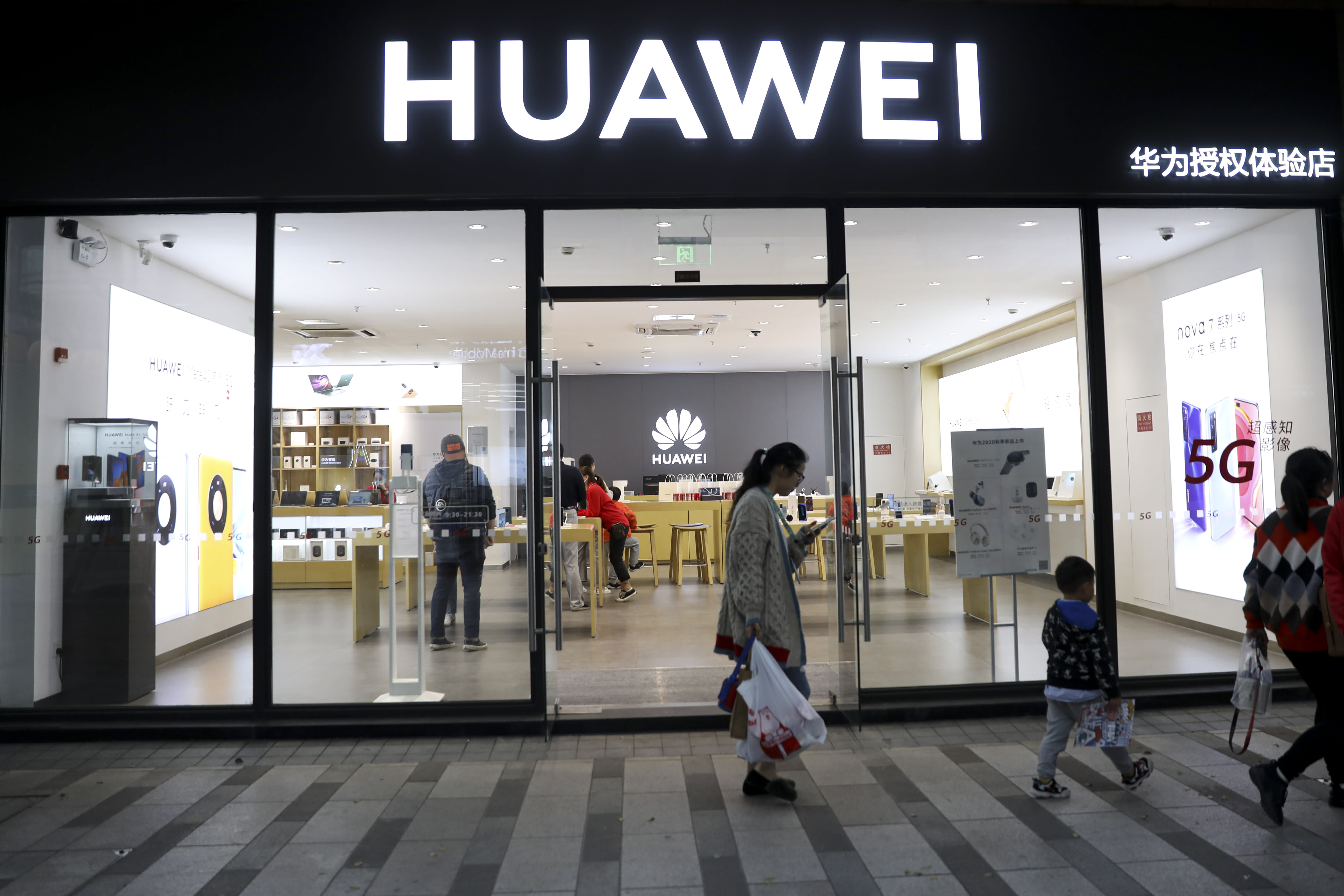From No. 1 to No. 6, Huawei smartphone shipments plunge 41% as U.S. sanctions bite

Customers at a Huawei licensed experience store shop for devices on October 30, 2020 in Suzhou, China.
Fred Lee | Getty Images News | Getty Images
GUANGZHOU, China — Huawei’s smartphone shipments have continued to plunge as a result of U.S. sanctions, sending the once No. 1 vendor in the world tumbling below rivals like Apple.
The Chinese technology giant shipped 33 million smartphones globally in the fourth quarter of 2020, a 41% year-on-year decline, putting its market share at 8%, according to data released by Counterpoint Research on Thursday.
That made Huawei the sixth biggest smartphone maker in the December quarter, behind Chinese rivals like Oppo and Vivo and far behind Apple and Samsung.
Data released Thursday by Canalys showed Huawei shipped 32 million smartphones in the fourth quarter, down nearly 43% from last year. It’s the first time Huawei has slipped out of the top five in six years, Canalys said.
“Huawei dramatically receded in most markets as the result of the US sanctions,” Amber Liu, analyst at Canalys Research, said in a report.
The latest figures mark a sharp fall for Huawei versus the second quarter of 2020 when it was No. 1 in the world by shipments.
For the entire 2020 year, Huawei was the third-largest by smartphone shipments, according to the research firms. Huawei responded to the latest numbers noting its third place position.
“Huawei has always been committed to innovation and devoted to creating more value for consumers with better products. Over the last year, our smartphone business has developed robustly, and tablet, PC and wearable have seen a significant growth. We remain confident about the future,” the company said in a statement.
Huawei’s woes come as Apple shipped 90.1 million phones during the fourth quarter, the largest number ever shipped by any vendor in the history of the smartphones, according to IDC. Apple also posted a record quarter of revenues in China.
Indeed, U.S. sanctions are taking their toll on Huawei’s smartphone business. In 2019, Huawei was put on a U.S. blacklist called the Entity List which restricted American firms from exporting key components and software to the company.
The biggest effect of that was cutting Huawei off from Google’s Android operating system. That’s not a big deal in China where Google services such a Gmail and search are blocked. But in international markets, it has been key to Huawei’s growth as consumers are used to these services.